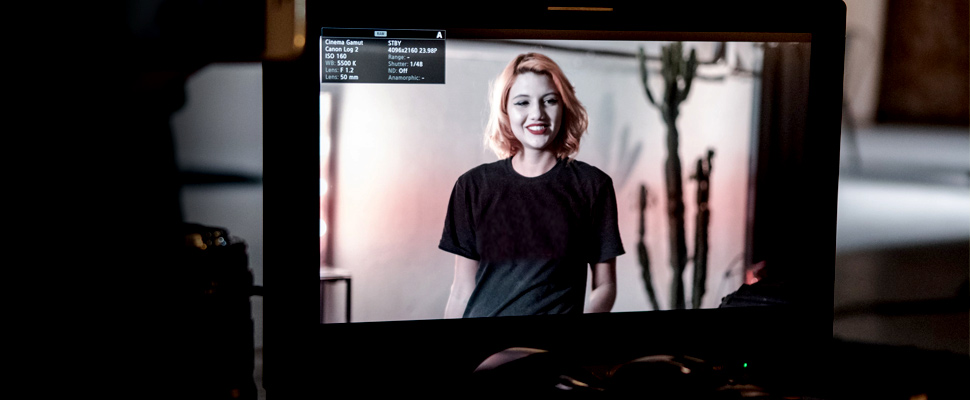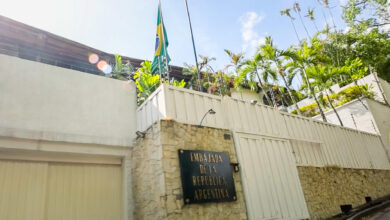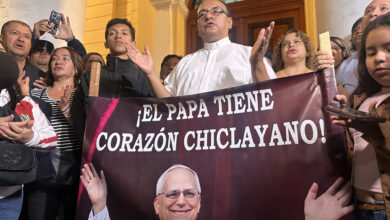Cinema comes as a resistance tool for women
Some film festivals as a backdrop by and for women allow us to explore femininity

A woman at a recording set seen through a TV screen / Reference Image /Pexels
LatinAmerican Post | Juan Gabriel Bocanegra
Listen to this article
The movement that emerged from #MeToo in 2017 is not only a consequence of the fact that the abuse in the audiovisual world has become more visible but also because of the greater presence and strength of women in the cinema.
Leer en español: El cine llega como una herramienta de resistencia para las mujeres
Film festivals have been a stage to start changing statistics such as those of the Ibero-American Federation of Film Academies, where the participation of women in the industry does not exceed 30%. The first of these was the Films de Femmes de Créteil, created in 1979. Since then, similar initiatives have been created, including the pioneer in Latin America, Femina, based in Rio de Janeiro and founded in 2004.
As stated by Melissa Silverstein, creator of the Women and Hollywood blog and founder of the Athena Film Festival, in statements collected by Latam Cinema, " Women's film festivals proactively address the lack of equity. They give women a place to be seen and heard". In this sense, it is not a matter of fulfilling a gender quota, but of making these festivals, spaces for discussions that are key in the process so that women have more and more participation.
You may be interested: LGBT+ Cinema: another pride for this month
"Now, the younger generations of women dedicated to the cinema, not only directors, go out to ask, to demand their rights, to fight about inequalities. Here and around the world. Because we are in a clear position of inequality. And the women's festivals raise these questions," Maria Victoria Menis, a filmmaker and member of the organization La Mujer y el Cine, founded in 1988, told Latam Cinema.
These four Latin American festivals point to this cinema.
1. Femina (Brazil)
Founded in 2004 by Paula Alves and with 12 editions made, this Brazilian festival aims to "highlight and disseminate female participation in film, with the exhibition of Brazilian and foreign long and short films in special sessions, debate forums, festival meetings and a sample in competition", as it stated in a press release.
This approach is notable in the categories of the awards: Best international women's participation, Grand Prix of the Femina International Women's Festival and the Elviras Short Film Award, in reference to the feminist group born in 2016. Also, events such as the seminar "Feminisms, cinema and intersectionalities: dialogues and strategies of resistance", held in 2017, open space to discuss the ideas that arise in the films.
2. FemeMina (Uruguay)
This short film festival was born in 2014 from an interest "in the visibility of the women who created the audiovisual, as well as in the construction of new models of women's representation in the cinema", as the Spanish Cooperation in Montevideo website recalls.
In 2018, they received more than 250 short films for their sections Feme Se shown and Feme International. Likewise, they carry out parallel activities such as forums and talks with special guests.
3. FEMCINE (Chile)
This year it celebrated its ninth edition and was founded by Antonella Estévez. As they affirm in their official page, "The motor of FEMCINE is to celebrate and to spread the cinema made by women and the one that has women as main characters, when we say 'Cinema that sees you' is because we believe that these films can help us to visualize and better understand the diversity of the realities of being a woman today. "
In this visibility plan, they have managed to turn the common statistics into festivals: of the 883 films they have screened, 80% are directed by women, as opposed to the 20% that normally make up the festivals.
In addition, the international, national and retrospective sections have some focused on gender issues, such as Ellas por ellos or Ellas con ellas.
You may be interested: 3 superheroines before the Marvel and DC sagas
4. International Exhibition of Women in Film and Television (Mexico)
A unos días de iniciar la XIV Muestra Internacional de Mujeres en el Cine y la TV. #SoyMujeresCineyTV #MujeresCineyTV pic.twitter.com/wkBMB9zpiP
— MujeresCineyTV (@MujeresCineyTV) September 30, 2018
Created in 2004 as a subsection of the Association of Women in Film and Television, headed by the Mexican director and producer, Rosa Adela López, this festival carried out its XIV edition in 2018. In the words of López, collected on the official page of the Mexican government, "we promote tenacious women, talented women. Within the association there are not only women directors or producers, there are many women who also have other tasks such as making makeup costumes, assistant directors or scriptwriters, we not only support the management but all women who are included in the audiovisual world".





